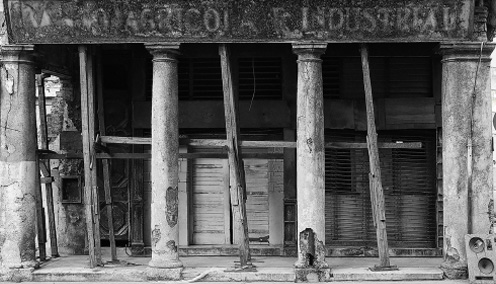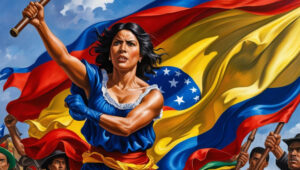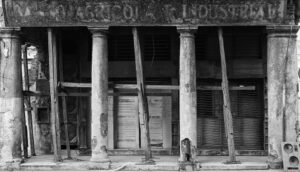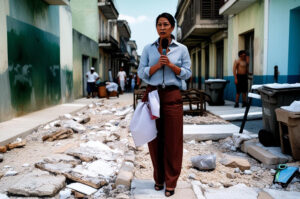Politicians, leaders, and YouTubers know how to take the best shots on camera. The messianic image is the archetype of our political understanding: People are led, and history is about leaders. The people themselves often go unnoticed or are mentioned only in moments of social unrest or suffering. Yet, in this story, the Cuban people are the true heroes. Strikingly, the totalitarian government and the Cuban exile community seem to agree on one thing: “The people have failed.” Open social media. Read Granma. For exiled journalists and opposition figures, the Cuban people are either victims of the regime, complicit, or cowards for not confronting it. For the spokespeople of Havana’s oligarchy, the people are like Abela’s fool: they must be protected from evil influences and educated. Both perspectives treat people as objects, not subjects—lacking agency, fickle, and manipulable. Historians on both extremes would post the same caption: “Someone saved the people.” I disagree.
Over the last thirty years, the Cuban government has undergone a gradual yet unstoppable decline—functionally, structurally, materially, and morally. In the 1980s, it reached the height of bureaucratic opulence, rivaling Western administrations. The government masqueraded as a state and nation, occupying every inch of the social and institutional fabric. It provided everything: bread and circuses, toothpaste, daycare, jobs and unions, judges, police, parliament, beach houses, foreign travel, curated news, and cultural consumption. However, in the 1990s, the Cuban people awoke in disillusionment, heartbreak, and resentment.
The narrative goes, “The fall of socialism in Europe caused the beginning of Cuba’s collapse” or something similar. From then on, the people became victims—either of structural failures or ideological deviations. Havana and Miami reached consensus: the Cuban people lacked agency. Hallelujah.
The alternative explanation is this: the people had had enough. Disillusionment turned into dissent, heartbreak, and finally into fury. The Cuban people once believed in and loved their leader, the great caudillo, the near-messiah—the only possible leader for a time. But reality, stubborn as ever, made the deceit unsustainable. The fall of the Berlin Wall also meant the disappearance of the millions propping up the charade. Sure, Fidel even saddled us with debt to buy Chinese kitchen gadgets in his last-ditch effort to play the beloved father. But the people never agreed again. The social contract broke on the streets of the Malecón in August 1994. That day, the revolution sealed its fate: it would fall.
The Cuban government wakes from its best fever dreams with the taste of Perla toothpaste and the scent of Nácar soap used to wash a Soviet-style shirt for a PCC municipal cadre’s meeting in Boyeros. How beautiful those “good years” must have seemed when everything was possible for that all-powerful bureaucratic apparatus! Those times will not return. The Cuban government will never again give us pollo-por-pescado[1].
No sensible politician wants to starve the people who outnumber them. The Cuban government, however, does—driven by a nostalgia for power over the island, even at the cost of becoming intensely despised. The broken social contract and the economic degradation of resources persist because the people refuse to allow the vile to profit from their semi-enslaved labor. Without the possibility of direct opposition, the disarmed people have turned to their arsenal: apathy, discredit, disengagement. Enter the depredation of resources—what is euphemistically called “la lucha”—the art of pretending to work while stealing, of outwitting the deceivers, of fleeing wherever possible. The Cuban people’s fury will be similar to the calculated patience with which Haitians once repaid their colonial oppressors: with rage, pain, and unrelenting defiance. The regime in Havana has every reason to lose sleep. No force can govern ten million people who do not wish to be governed. The power of repression has its limits.
We must look at the island with compassion and pride. We have suffered so much. Politicians and diplomats from one side and the other stole the best years from us. So many owe us so much. We deserve the peace and freedom that we will give ourselves. As for the Castro elite and their opportunistic heirs—sorry, no one wants you. We will no longer bathe with Nácar soap or anything else made in Cuba because we refuse to work for you.
There is a segment of the exile community that looks at Havana, so near yet so far, with resentment and dreams of marines and blackouts targeting the CDR snitches. That is unnecessary. The regime has been in freefall. From its once-mighty government machinery, the remainders are emaciated ministries incapable of providing rice, sugarcane, or electricity; a foreign policy servile to distant, non-Western powers; and an internal policy defined by violence and terror, reflecting Cuba’s fractured social cohesion. The government in Havana now exists solely to protect the privileges of the Castro oligarchy. The people—determined not to die as slaves, model workers, or CDR stars—have dismantled the bureaucratic-ideological nightmare piece by piece. From within and without, we must now transition from anger to strategy, empowering the Cuban people against their oppressors. It is urgent to reject any political project that does not uplift them. Hunger and indignity diminish the Cuban spirit as much as a sweltering, mosquito-filled night. From my comfortable perch of heating, dinner, and a car, I cannot ask my people for further sacrifice. My people honor and inspire me—they do not know freedom yet refuse to live without it. The brevity of human experience limits our view of social phenomena. As fashionable as they are, appeals to common sense only reinforce individual subjectivities—whether of those who claim to speak for the Cuban people or those who humbly request respect and reconciliation. The latter, I find, is less morally costly: let us embrace the pride of being Cuban, having escaped, and knowing we will return with peace. The politicians and YouTubers will collect the fruits the rebellious Cuban people nurtured.
[1] “Pollo por pescado” (literally “chicken for fish”) was a phrase used in Cuba, especially during the economic crisis known as the Período Especial (Special Period) in the 1990s. It referred to the Cuban government’s policy of substituting chicken for fish in people’s rationed food supplies.
Due to shortages caused by the collapse of the Soviet Union—Cuba’s primary trade partner—many staple foods became scarce, including fish, which had been a regular part of the Cuban diet. To compensate, the government distributed chicken instead, even though it was not a direct replacement. The phrase became symbolic of the food shortages and economic hardships of the time.
It also became a kind of dark humor among Cubans, representing the ways the government rebranded scarcity as an adjustment rather than acknowledging the full extent of the crisis. (Source Chat GPT, prompt: “what was pollo por pescado in Cuba”)












